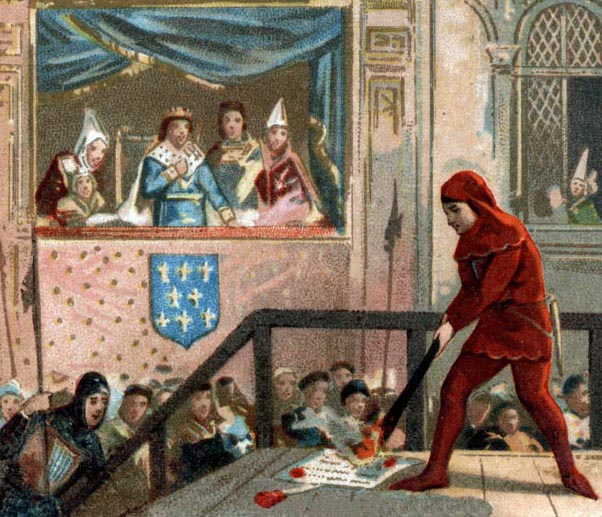
IN CONTEXT
Constitutionalism
The rule of law
c.350 BCE In his Politics, Aristotle says that Man is a political animal by nature.
13th century Thomas Aquinas incorporates Aristotle’s ideas into Christian philosophy and political thinking.
1328 Marsilius of Padua sides with King Louis IV and secular rule in his power struggle against Pope John XXII.
c.1600 Francisco Suárez argues against the divine right of kings in Tractatus de legibus ac deo legislatore.
1651 Thomas Hobbes’s Leviathan describes life in a state of nature as “solitary, poor, nasty, brutish, and short,” and advocates a social contract to protect all citizens in society.
The teachings of the Greek philosopher Aristotle, long ignored in Europe, became accepted by the Church in the 13th century thanks largely to the work of the Dominican priest Thomas Aquinas and his protégé Giles of Rome. As well as writing important commentaries on Aristotle’s works, Giles developed his ideas further, in particular the notion of man as a “political animal”—“political” in the Aristotelian sense of living in a polis or civil community, rather than referring to a political regime.
For Giles, being part of a civil society is “living politically,” and is essential to living a good life according to virtue. This is because civil communities are regulated by laws that ensure and safeguard the morality of their citizens. Giles suggests that good laws should enforce virtues, such as justice. Being a member of society—living politically—requires adherence to these laws; not abiding by them means living outside society. It follows that it is the rule of law that distinguishes “political” life from tyranny, since a tyrant excludes himself from civil society by not adhering to the law.
Although Giles believed that a hereditary monarchy was the form of government best suited to rule a political society, as an archbishop his loyalties were divided between the Church and secular power. Eventually, he sided with the pope by declaring that kings ought to be subordinate to the Church.

King Philip IV of France arranged a public burning of the Unam Sanctam. This document attempted to force the king into submission to the papacy—a principle that Giles agreed with.
See also: Aristotle • Thomas Aquinas • Marsilius of Padua • Francisco Suárez • Thomas Hobbes
